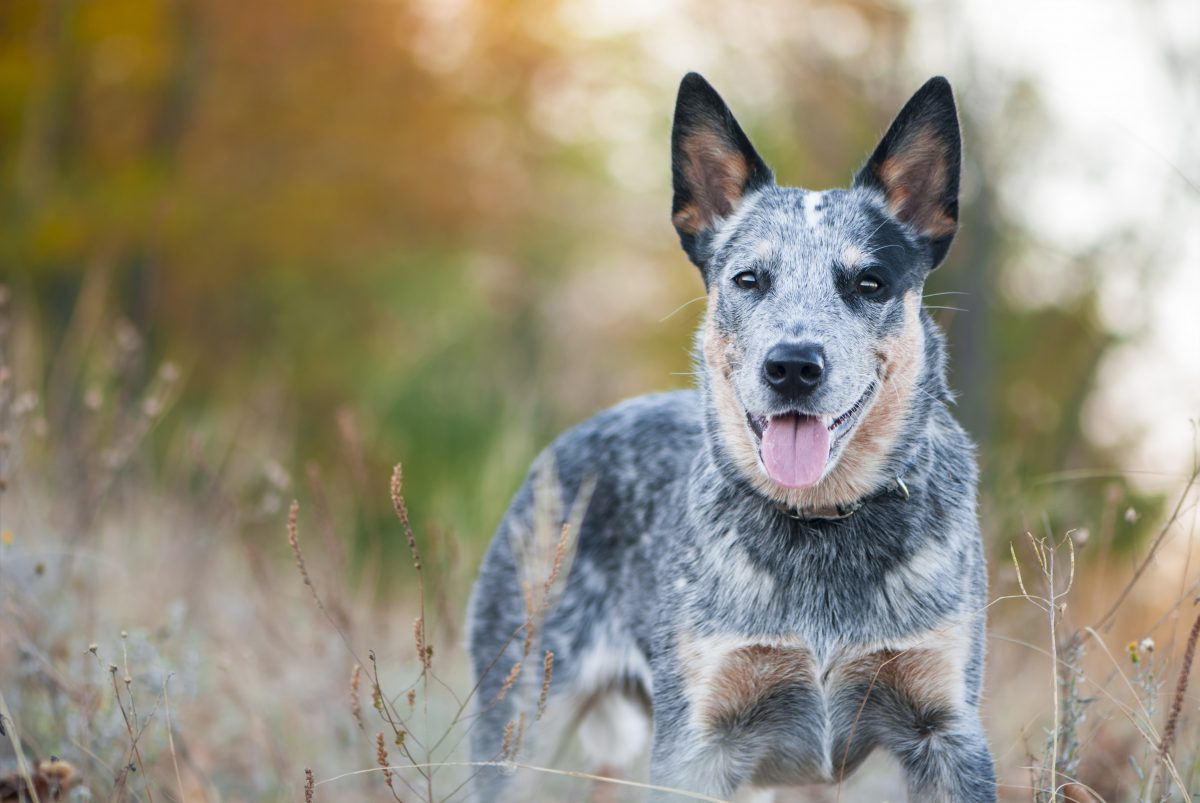What Dog Has the Least Health Problems? The Basenji breed is known to have the most minor health problems among dogs. Basenjis are generally healthy and robust dogs that require minimal veterinary care.
Their clean bill of health makes them a popular choice for dog owners looking for a low-maintenance pet. With their unique characteristics and minimal health concerns, Basenjis are an excellent option for those seeking a healthy and happy canine companion.
In this blog post, we will explore the reasons behind Basenji’s good health, their exercise and grooming needs, and tips for keeping them in top condition. Let’s delve into the world of the Basenji breed and discover why they are considered one of the healthiest dog breeds around.
What Dog Has the Least Health Problems? Read this full post to know more about it

Credit: www.goodhousekeeping.com
Introduction To Canine Health
Importance Of Genetics
Genetics is crucial in determining a dog’s susceptibility to health problems.
Lifestyle Impact On Health
A dog’s lifestyle choices can significantly influence its overall health and well-being.
Criteria For Healthy Breeds
When considering a furry addition to your family, it’s crucial to prioritize a breed known for its health and longevity. Understanding the criteria for healthy breeds can help you make an informed decision. Genetics, breed-specific health screenings, and longevity significantly determine the breed with the most minor health problems.
Longevity Factors
Breed longevity is a crucial indicator of overall health. Breeds known for their longevity tend to have fewer health issues. For example, smaller breeds like Chihuahuas and Dachshunds typically live longer than larger breeds such as Great Danes or Saint Bernards. Additionally, mixed-breed dogs often exhibit hybrid vigor, increasing longevity and reducing health problems.
Common Health Screenings
Regular health screenings are essential for identifying potential health issues early on. Breed-specific screenings can help detect common genetic conditions and allow for proactive management. For example, breeds prone to hip dysplasia may undergo hip evaluations, while certain breeds may require cardiac screenings for conditions like dilated cardiomyopathy. These screenings are crucial for maintaining your furry companion’s overall health and well-being.
What Dog Has the Least Health Problems? Click here for more details about this: Click here
Small Breeds With Few Health Issues
When choosing a dog breed, considering the potential health issues it may face is essential. Small breeds are often perceived as having fewer health problems than larger breeds. In this section, we will explore small dog breeds known for their resilience and minimal health issues.
Chihuahua: Tiny But Tough
Chihuahuas are the smallest dog breed, yet they are remarkably resilient. Their petite size contributes to their overall good health, and they are not prone to many common health issues affecting larger breeds. Despite their small stature, Chihuahuas are known for longevity and often live well into their teens. A healthy diet and regular exercise are essential for preserving their wellbeing.
Basenji: The Barkless Breed
Basenjis are a unique small breed known for their barkless nature. Their minimal barking tendencies are just one aspect of their distinctive characteristics. In terms of health, Basenjis are generally free from common genetic health issues that affect many other breeds. They are an active and alert breed, requiring regular physical and mental stimulation to stay healthy and happy.

Credit: www.petmd.com
Medium-sized Hardy Canines
Medium-sized hardy canines like the Australian Cattle Dog typically have fewer health issues than other breeds. Their robust nature and minimal genetic predispositions make them a top choice for owners seeking dogs with the fewest health problems.
When adopting a dog, it’s essential to consider their health. No one wants to deal with frequent trips to the vet or costly medical bills. If you’re looking for a medium-sized dog breed that’s healthy and hardy, you’re in luck. Here are two of the healthiest medium-sized dog breeds you can add to your family.
Border Collie: Intelligent And Resilient
The Border Collie is a highly intelligent and one of the healthiest breeds. It is known for its remarkable work ethic, which makes it popular with farmers and ranchers. Border Collies are also very active and require plenty of exercise, making them ideal for families who enjoy outdoor activities. They are highly trainable and make excellent companions for those with dog experience.
Australian Cattle Dog: Born To Work
Australian Cattle Dogs are another medium-sized breed that’s highly resilient and healthy. They were initially bred to work on ranches and farms, so they have a lot of energy and require plenty of exercise. These dogs are highly intelligent and make excellent watchdogs. They also guard their family with a great deal of loyalty. Australian Cattle Dogs can live long and healthy lives with proper care and exercise.
In Conclusion
When adopting a dog, choosing a healthy breed is critical. Selecting a medium-sized breed like the Border Collie or Australian Cattle Dog ensures your new furry friend will be healthy and hardy for years. With their intelligence, loyalty, and energy, these breeds make excellent companions for families who enjoy an active lifestyle.
What Dog Has the Least Health Problems? Also click here for more details about his dog health: click here
Large Breeds Known For Health
The Australian Cattle Dog has the fewest health problems among large breeds known for their excellent health. With their robust nature and active lifestyle, these dogs often enjoy a long and healthy life.
When it comes to choosing a dog breed, many people prioritize health over other factors. Giant breeds, in particular, are often prone to health issues such as hip dysplasia, heart problems, and cancer. However, some giant breeds are known for their overall good health and longevity. This section will discuss two large breeds known for their excellent health: Greyhounds and Mastiffs.
Greyhound: Racing To Good Health
Greyhounds are a breed commonly associated with racing but are also great pets. These dogs are known for their lean physique and incredible speed but are also relatively healthy. Greyhounds are generally free of the genetic health problems that plague other large breeds, and they have a life expectancy of 10-14 years.
One reason Greyhounds are so healthy is that they were bred for their athleticism rather than their appearance. Breeders focused on producing dogs that could run fast and far rather than dogs with exaggerated physical features that could lead to health problems.
If you are considering a Greyhound as a pet, it is essential to note that these dogs have a high prey drive and may not be suitable for homes with small animals. They are also sensitive and may be timid around strangers, so early socialization is essential.
Mastiff: Gentle Giants
Mastiffs are often called “gentle giants” due to their size and calm temperament. These dogs are known for being great with children and other pets and are relatively healthy. Mastiffs have a life expectancy of 6-10 years, shorter than some other breeds, but are generally free of genetic health problems.
One of the keys to keeping a Mastiff healthy is managing their weight. These dogs can become obese if they are overfed or do not get enough exercise, which can lead to joint problems and other health issues. It is also essential to provide Mastiffs with regular veterinary care and to watch for signs of health problems such as hip dysplasia and heart disease.
Greyhounds and Mastiffs are two large breeds known for their excellent health. If you are considering a large breed dog and want to prioritize health, these breeds are worth considering. Just be sure to research and choose a dog that fits your lifestyle and personality.

Credit: canna-pet.com
Preventative Measures For Dog Health
Dogs are cherished members of our families, and it’s crucial to prioritize their health to ensure they live long happy lives. By implementing preventative measures, pet owners can significantly reduce their dogs’ risk of health problems. From regular veterinary check-ups to appropriate diet and exercise, various steps can be taken to safeguard the well-being of our furry companions.
Regular Veterinary Check-ups
Regular veterinarian visits are necessary to keep your dog healthy. Annual visits to the vet allow for early detection of any potential health issues, ensuring prompt treatment and preventing more severe complications. During these visits, the vet can administer necessary vaccinations, conduct preventative screenings, and provide guidance on maintaining your dog’s overall well-being.
Diet And Exercise
Proper diet and exercise are crucial in preventing health problems in dogs. A balanced diet tailored to your dog’s specific needs and regular exercise helps maintain a healthy weight and promotes overall well-being. Adequate nutrition and physical activity contribute to solid immunity and reduce the risk of various health issues, including obesity, heart disease, and joint problems.
Understanding Hereditary Health Problems
Discovering the dog breed with the fewest hereditary health issues can significantly impact your pet’s well-being. Understanding hereditary health problems enables you to make informed decisions to ensure your dog lives long and healthy. This proactive approach involves researching breeds known for their genetic resilience to minimize potential health concerns.
Understanding Hereditary Health Problems
Genetic Testing for Dogs
Genetic testing for dogs is an invaluable tool in identifying potential health issues. By identifying genetic predispositions, breeders and pet owners can take proactive steps to minimize the risk of hereditary health problems in their dogs. Genetic testing can also identify specific health markers, providing a clear picture of potential health risks.
Breeding for Health
Breeders play a crucial role in promoting the health and well-being of dogs. By prioritizing health in their breeding programs, breeders can reduce the prevalence of hereditary health issues in future generations. Through selective breeding, emphasis can be placed on desirable traits while minimizing the risk of passing on genetic health concerns.
In summary, understanding hereditary health problems in dogs is vital for promoting the overall well-being of our canine companions. Genetic testing and responsible breeding practices are instrumental in mitigating the risk of hereditary health issues, ensuring that our dogs can live long, healthy lives.
Adopting A Healthy Dog
Choosing A Responsible Breeder
Look for breeders who prioritize health testing and socialization.
- Make sure the breeder offers genetic condition health clearances.
- Visit the breeder’s facility to assess cleanliness and how dogs are kept.
Health Considerations In Shelters
Shelters offer diverse breeds and mixed breeds with varying health backgrounds.
- Ask shelter staff about the dog’s medical history and any known issues.
- Consider a vet check-up post-adoption to address any health concerns.
Faqs About Healthy Dog Breeds
When considering bringing a furry friend into your home, it’s natural to want a breed that is less prone to health issues. To help you make an informed decision, here are some FAQs about healthy dog breeds, including top concerns from prospective owners and expert advice on choosing a breed.
Top Concerns From Prospective Owners
Prospective dog owners often have questions about which breeds are less prone to health problems. Understanding the top concerns can help in selecting a healthy dog breed that suits your lifestyle and preferences.
Expert Advice On Choosing A Breed
Expert advice is crucial when it comes to choosing a healthy dog breed. With the proper guidance, you can make an informed decision that aligns with your expectations and ensures your furry companion’s happy, healthy life.
Conclusion: Prioritizing Health In Breed Selection
Choosing a dog breed with minimal health issues is crucial for the well-being of your furry companion.
The Role Of Owners In Dog Health
Owners play a pivotal role in maintaining their dog’s health through regular vet check-ups and a nutritious diet.
- Provide adequate exercise and mental stimulation
- Ensure timely vaccinations and preventative care
- Observe any alterations in appetite or behaviour
Final Thoughts On Health-focused Breeds
Opting for breeds known for their excellent health can reduce the risk of hereditary conditions and costly medical treatments.
| Breed | Common Health Issues |
|---|---|
| Labrador Retriever | Obesity, hip dysplasia, and ear infections |
| Poodle | Eye conditions, skin allergies, and bloat |
| Border Collie | Epilepsy, hip dysplasia, and deafness |
What Dog Has the Least Health Problems? See your questions carefully for more details on this
Frequently Asked Questions
What Dog Has the Least Health Problems?
What Dog Has the Least Health Problems? The Basenji breed is known to have the most minor health problems among dogs. Basenjis are generally healthy and robust dogs that require minimal veterinary care.
Which Dog Breed Has The Least Health Issues?
While no breed is entirely free of health issues, the Basenji, Australian Cattle Dog, and Beagle are known for their excellent health. Regular vet check-ups are still crucial for all breeds.
What Is The Healthiest Dog?
The healthiest dog breed depends on size, genetics, and lifestyle. Due to genetic diversity, mixed breeds tend to be more nutritious. Regular exercise and a balanced diet are key to a dog’s health.
What Is The Lowest Maintenance Dog To Have?
The Basenji is a low-maintenance dog breed. Its short coat requires minimal grooming, and it is a fastidious self-groomer.
What Breed Of Dog Has The Most Health Problems?
English Bulldogs, Pugs, and Boxers are breeds known for the most health problems. These issues can include breathing difficulties, skin conditions, and joint problems. Regular veterinary check-ups are essential for these breeds.
What Dog Has the Least Health Problems? Why do you need to know about: click here
Conclusion
Choosing a dog breed with fewer health issues can lead to a happier, healthier pet. Prioritizing breeds known for their genetic resilience and overall well-being can help mitigate potential health concerns. Consider consulting with a veterinarian to find the best fit for your lifestyle and ensure your furry friend’s long-term health.

Hello I am Farhana I have been doing research on dogs since last 10 years. I have been doing research on dog special parts or dog food since last 10 years. I have gained knowledge about my dog in these ten years so. I want to blog about it daily.

